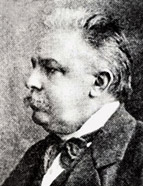

Marques Gomes also reflected on the Revolution of September 1836, which restored the privileges of the Vintist Constitution. For the author, one of the causes of this revolt was the effect of the revolution in Spain—the year before the Setembrista revolution—which established the Constitution of Cádiz in 1812 as the law of the state. Finally, he criticised the myth of the Cortes de Lamego raised by José de Arriaga about the principle of pure legitimacy after the death of King João VI. According to José de Arriaga, King Pedro IV, the Emperor of Brazil, could not succeed João VI to the Portuguese crown because he was a foreigner, as proven by the minutes of the Cortes de Lamego, and King Miguel was the legitimate successor to the throne. However, Marques Gomes counters José de Arriaga's view by stating that Pedro IV was indeed Portuguese and that the fact he had assumed the crown of Brazil did not strip him of his nationality, mentioning even that the Lamego Courts only excluded true foreigners from ascending the throne, and not those who had been born in Portugal ( Lutas Caseiras , pp. 500-501).
In his work on liberal constitutionalism, in which he defines a specific chronological period (1834 to 1851), Marques Gomes tried to create a chronicle based history with quotes from members of the Courts. He also sought to describe the bases or principles that the political parties established between themselves, as well as the ideological confrontation between them. There's a strong attachment to the concepts of "revolution" and "counter-revolution": the author also tended to side with the liberal principles of the time in which he lived. He takes sides at the beginning of the book, in which he glorifies the 1820 Liberal Revolution, also linking its success to the participation of his home city, Aveiro, in the outcome of the event.
This work is financed by national funds through FCT - Foundation for Science and Technology, I.P, in the scope of the projects UIDB/04311/2020 and UIDP/04311/2020.
